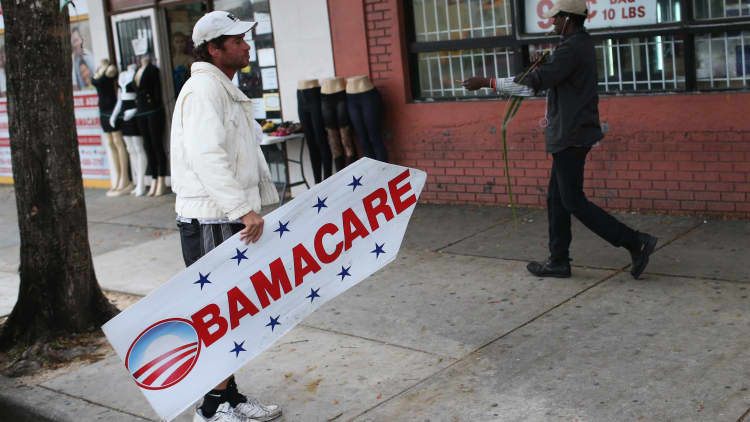
The poor, unemployed, and minorities are most likely to lose health insurance if Congress repeals the Affordable Care Act, researchers say. And because these groups tend to suffer from more health problems in the first place, the Republican plan to dismantle the ACA is likely to hurt those who are most vulnerable.
About 20 million Americans have insurance under the ACA. In a research letter published today in the journal JAMA Internal Medicine, researchers used information from the 2015 National Health Interview Survey to identify three groups of people under 65 who are most likely to lose coverage. All of these groups are severely below the federal poverty level (FPL). One group is people with income 400 percent below FPL who bought insurance through the exchange. The second is childless adults who don't get disability income, and whose income is 138 percent below FPL. The third group is adults in families with children who don't receive disability income, who are enrolled in Medicaid, and whose income is 50 to 138 percent below FPL.
More from The Verge:
Obama's first act as a citizen: launching a new website
Donald Trump reportedly set to name net neutrality foe Ajit Paito lead the FCC
The Women's March movement is taking place on every continent, even Antarctica
The results aren't surprising, since these are the groups who are more likely to have enrolled in ACA, as opposed to employer-sponsored insurance. And it's no coincidence that many of these people are those who need the health insurance most. These adults are more likely to have chronic illness, been hospitalized in the past year, and have worse self-reported health, according to the researchers.
The study didn't include children and doesn't take into account possible ACA modifications, like protections against preexisting conditions or changes to state Medicaid block grant programs. These possibilities might blunt some of the effects of a repeal, but today's study still shows that many will be harmed if the Republican plan goes through.

